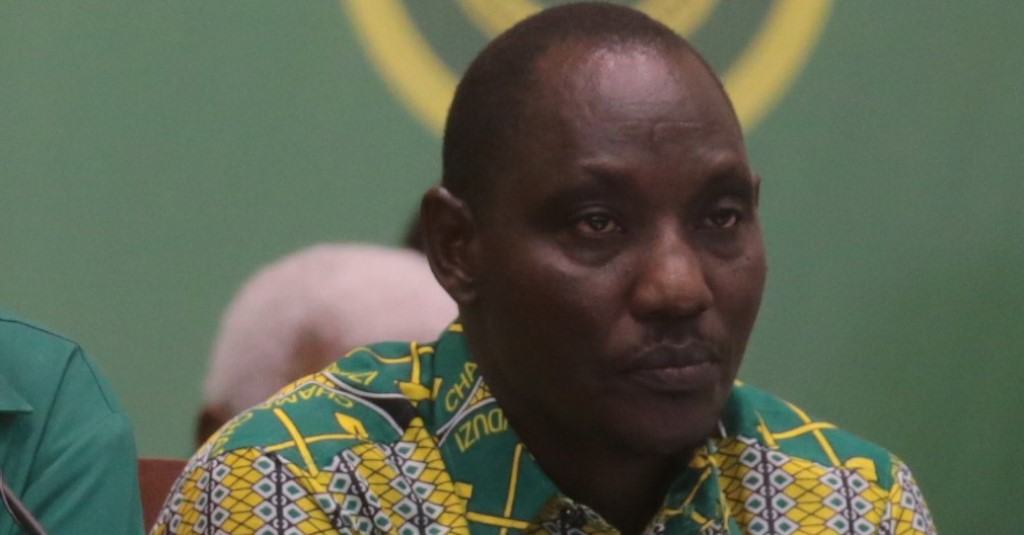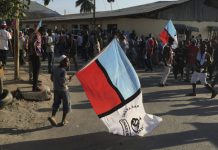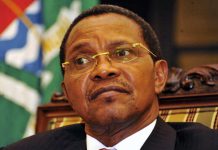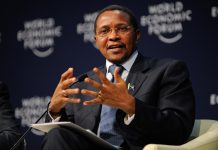Author: KATARE MBASHIRU
AfricaPress-Tanzania: THE ruling Chama Cha Mapinduzi (CCM) has outlined six key priority areas in its 2020/2025 Manifesto, among them, creating not less than eight million employment opportunities.
Others are protecting and strengthening the Union between Tanzania Mainland and Zanzibar as well as ensuring that humanity, unity and cooperation remain intact.
Briefing delegates who convened at Dodoma’s Jakaya Kikwete Convention Centre yesterday for the National Executive Committee (NEC), meeting, the party’s Secretary General, Dr Bashiru Ally said that the party’s next manifesto equally seeks to improve the country’s modern economy and putting in place enabling infrastructure.
Dr Bashiru said further that the party through its 2020/2025 manifesto intends to bring about an agricultural revolution which will make the country independent when it comes to food reserves.
“In our manifesto, we equally want to intensify social services including education, health, electricity supply as well as ensuring that all people in the country have better habitats,’’ he added.
Dr Bashiru further said that the CCM election manifesto capitalises on research and innovation which gears towards the country’s ambitious economic revolution.
Earlier on when presenting a progress report on the implementation of the 2015/ 2020 election manifesto, Prime Minister Kassim Majaliwa said that his party had fully managed to deliver to the desired expectations.
He said President Magufuli will go down in the country’s history as one of the leaders who excelled in his performance during his first term in office after recording tremendous achievements, ranging from economic to social developments.
Among great achievements, include Tanzanians remaining united in spite of their disparities in religions, tribes, colours and political affiliations.
Other achievements include taming armed robberies, placing Tanzania at seventh position in the list of peaceful countries in Sub-Saharan Africa, rising government revenue from 850bn/-in 2015 to 1.3tri/-, increasing accessibility to social services such as education, health and water.
During the past five years, President Magufuli’s government has also sped up investments in strategic projects, and has so far injected 126.8trn/-towards implementing various development projects that target to improve the social and economic status of the country.
The construction of various flagship projects is progressing well as the Julius Nyerere Hydropower Station is at more than 40 percent of its construction while the first-phase of the Standard Gauge Railway from Dar es Salaam to Morogoro is scheduled to be finished in June next year.
The 7trn/-worth project is at an advanced stage of completion between Morogoro and Dar es Salaam and Morogoro to Makutupora in Singida.
The Morogoro—Dar es Salaam section of the SGR project is now at 78 per cent and some trials have also begun and the government plan is to ensure the project is completed by June next year.
Some other projects implemented by the government include a 270bn/-worth Selander bridge and Kigongo—Busisi Bridge. Ubungo interchange had by last month reached 77 percent and will cost 247bn/-upon completion.
Zanzibar second vice-president Ambassador Seif Ali Idd presented a report on the implementation of the 2015/2020 manifesto for the Isles.
The 233-pages document referred to among other achievements as the country’s peace and tranquility, which have helped to bolster the national Gross domestic Product (GDP) from 1,768bn/-in 2010 to 2,874bn/-as of 2018, with the per capita income increasing from 942,000/-to 2,323,000/-during the period.
During the period, Zanzibar has also succeeded to attract serious investors, with data from Zanzibar Investment Promotion Agency (ZIPA), showing that 304 projects involving 3.74 billion US dollars (over 8tri/-) were executed, creating 16,866 jobs.
President Shein’s presidency spearheaded free education and health services have yielded great feats as portrayed by the number of student enrolment both at nursery, primary and secondary schools.
The number of secondary schools has increased to 284 with 130,713 students last year from 105 schools, which had 80,008 students in 2010 when Dr Shein first assumed the presidency.
The outgoing president leaves behind a historical legacy of paying pensions to all senior citizens in the Indian Ocean’s semi-autonomous archipelago.
Dr Shein’s government has also invested heavily in transport infrastructure-land, marine and air transport, in efforts to accelerate industrial and service backed economic growth.







